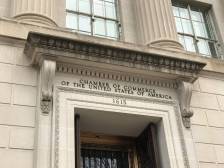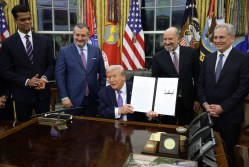Attorneys general urge Congress to study AI’s role in exploiting children

Attorneys general representing 54 states and territories penned a letter this week urging Congress to establish an expert commission to study the “means and methods of artificial intelligence used to exploit children” through the generation of child sexual abuse material.
In recent months, the federal government has increased its focus on AI regulation with numerous congressional hearings and the creation of a new AI public working group composed of industry experts. The attorneys general write in their letter that they “commend” those efforts, but say those actions focus more on AI’s impact on national security and education while the safety of children falls “through the cracks.”
“As the world has become increasingly aware, AI is rapidly transforming the landscape of what is possible,” the letter reads. “While AI has the potential to bring about remarkable advances in our society, it also has the potential to inflict serious harms.”
The attorneys general cite news reports of the technology being used in nefarious ways, such as kidnapping scams and stalking unsuspecting victims. They also point to articles about AI-generated child sex images.
They suggest that Congress should convene an ongoing expert commission to study the “means and methods of AI that can be used to exploit children” and propose solutions to deter and address exploitation as the technology evolves.
Following the proposed commission’s recommendations, the attorneys general suggest that Congress should expand existing restrictions on child sexual abuse material to cover AI-generated media to “ensure that prosecutors have the tools they need to protect our children.”
“We are engaged in a race against time to protect the children of our country from the dangers of AI,” the letter reads. “Indeed, the proverbial walls of the city have already been breached. Now is the time to act.”
The letter was co-sponsored by attorneys general of Mississippi, North Carolina, South Carolina and Oregon. Fainu’ulelei Falefatu Ala’ilima-Utu of American Samoa was the only attorney general who did not sign the letter.






